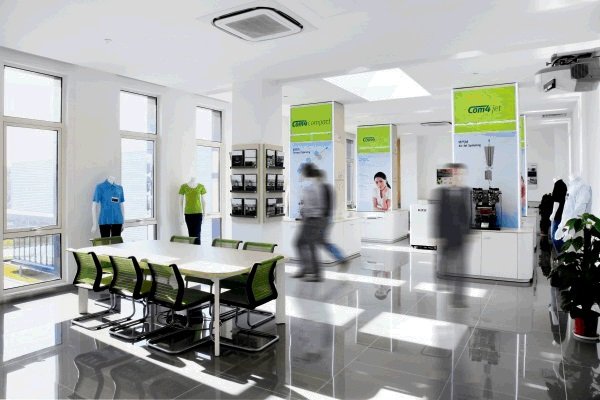
Rieter completes real estate sale in Ingolstadt
Rieter, a leading supplier of systems for short-staple fibre spinning, has recorded a significant increase in order intake in 2017.

16th March 2018
Innovation in Textiles
|
Winterthur
Rieter, a leading supplier of systems for short-staple fibre spinning, has recorded a significant increase in order intake in 2017. The company posted an order intake of CHF 1 051.5 million, an increase of 16% compared to the previous year. Thus, the upturn that began in the first half of 2017 continued.
Rieter also forged ahead with the improvement programme Step Up in the 2017 financial year. Strengthening innovative capacity and the after sales and components business, as well as increasing profitability through cost reduction, remain the top priorities.
“The systematic implementation of the current innovation programme continues. For example, the single-head draw frame RSB-D 50 was launched successfully in 2017,” the company said. “In 2018, Rieter will present a new ring spinning machine and a new compact spinning machine. In the Business Groups After Sales and Components, innovations that enjoy strong demand are also regularly launched on the market. Research and development expenditure increased to CHF 49.2 million.”
The restructuring charges amounted to CHF 36 million. These are associated with the reorganisation of the Ingolstadt location (Germany). Consequently, at CHF 13.3 million, the net profit is considerably lower than in the previous year.
The 2017 financial year was characterised by improved profitability in the Business Group After Sales and weaker, volume-related results in the Business Groups Machines & Systems and Components. With slightly higher sales than in the previous year, Rieter recorded an EBIT margin of 5.4% or CHF 51.8 million.
In the Asian countries (excluding China, India and Turkey), Rieter increased sales in the reporting year by 11% to CHF 319.1 million. At CHF 184.0 million, a good level of sales was achieved in China, despite a slight decline of 1%. Sales in India fell by 5% to CHF 173.8 million. Sales in Turkey fell by 16% to CHF 100.1 million in 2017. Orders in the USA and Brazil led to sales of CHF 114.7 million in the North and South America region, an increase of 32%.
In terms of sales, the Business Group Machines & Systems posted a decline to CHF 589.5 million, from CHF 603.4 million in 2016. The Business Group After Sales generated sales of CHF 146.3 million, compared to CHF 141.6 million in 2016. With stable installation volume, growth was driven by spare parts and after sales services. The Business Group Components increased sales thanks to the acquisition of SSM Textile Machinery to CHF 229.8 million, versus CHF 200.0 million in 20016.
Last year, Rieter acquired the SSM Textile Machinery Division (SSM) from Schweiter Technologies AG in Horgen, Switzerland. Assigned to the Business Group Components, the unit will further strengthen Rieter’s components business.
Following the agreement with the Works Council, the restructuring at the Ingolstadt location is proceeding according to plan. Rieter will concentrate on the development of machines in Ingolstadt, and the previous production will be relocated to Ústí nad Orlicí in the Czech Republic.
In Winterthur, the intention is to create a modern location, concentrating the customer centre, product and technology development, assembly and administration on an area of approximately 30,000 square metres. In October 2017, Rieter launched a study contract and awarded this to five renowned consultancy firms from the Canton of Zurich. These firms have until the end of March 2018 to submit their projects. The final decision will be taken by the Rieter Board of Directors during 2018.

Business intelligence for the fibre, textiles and apparel industries: technologies, innovations, markets, investments, trade policy, sourcing, strategy...
Find out more